
The 1896 Summer Olympics, officially known as the Games of the I Olympiad and commonly known as Athens 1896, was the first international Olympic Games held in modern history. Organised by the International Olympic Committee (IOC), which had been created by French aristocrat Pierre de Coubertin, it was held in Athens, Greece, from 6 to 15 April 1896.

At the 1896 Summer Olympics, the first modern Olympiad, twelve athletics events were contested. A total of 25 medals were awarded. The medals were later denoted as 37 modern medals. All of the events except the marathon were held in the Panathinaiko Stadium, which was also the finish for the marathon. Events were held on 6 April, 7 April, 9 April, and 10 April 1896. Altogether, 63 athletes, all men, from nine nations competed. This made athletics the most international of the nine sports at the 1896 Games.
Eugène-Henri Gravelotte was a French fencer. He was the first modern Olympic champion in foil and first French gold medalist, winning the event at the 1896 Summer Olympics in Athens. He was born in Paris.
Fritz Hofmann was a German athlete. He competed at the 1896 Summer Olympics in Athens.
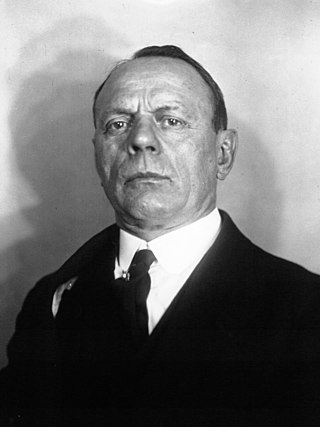
François Étienne "Frantz" Reichel was a French sports administrator, athlete, cyclist and journalist. He competed at the 1896 Summer Olympics in Athens as a runner and at the 1900 Summer Olympics in Paris as a rugby union player. He co-founded the Association Internationale de la Presse Sportive (AIPS), and served as its first president in 1924–1932.
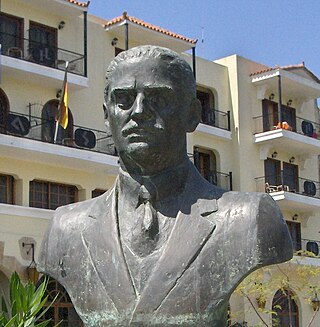
DimitriosP. Golemis was a Greek athlete. He competed at the 1896 Summer Olympics in Athens.
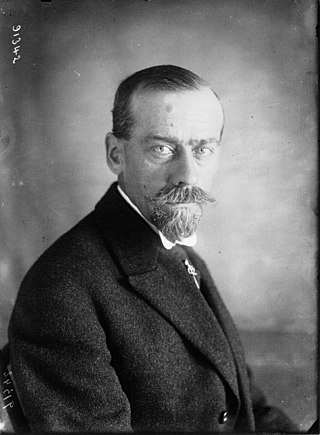
Albin Georges Lermusiaux was a French athlete and sport shooter who competed at the 1896 Summer Olympics in Athens.
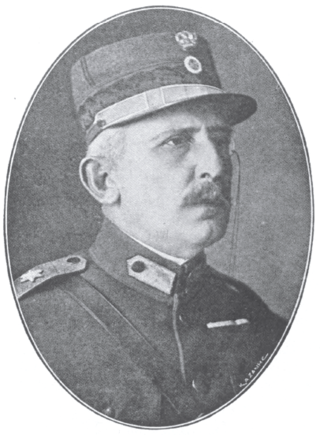
Periklis Pierrakos-Mavromichalis, also known as Mavromichalis-Pierrakos, was a Greek military officer and politician.
Eugène Henri Callot was a French fencer. He competed at the 1896 Summer Olympics in Athens. He was born in La Rochelle.
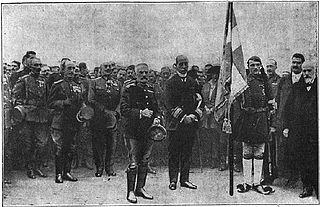
Konstantinos Miliotis-Komninos was a Hellenic Army officer who rose to the rank of Lieutenant General. He was also an amateur swordsman, competing in the 1896 Athens Olympics. He also served in the Organizing Committee for the 1906 Intercalated Games.
Georgios Valakakis was a Greek fencer. He competed at the 1896 and 1906 Summer Olympics.
Ioannis Poulos was a Greek fencer. He competed at the 1896 Summer Olympics in Athens.
Athanasios Vouros was a Greek fencer. He competed at the 1896 Summer Olympics in Athens. He was born in Athens.

The men's 110 metres hurdles was the first of the track and field events on the athletics programme at the 1900 Summer Olympics in Paris. It was held on July 14, 1900. Nine athletes from three nations competed in the shortest of the hurdling events. The event was won by Alvin Kraenzlein of the United States, the second of five consecutive victories for the nation in the first five Olympic Games. It was also the first of four consecutive podium sweeps for the Americans in the event.

France competed at the 1928 Summer Olympics in Amsterdam, Netherlands. 255 competitors, 219 men and 36 women, took part in 112 events in 17 sports. At the beginning of the games there was an incident where a French coach was physically assaulted by a Stadium gatekeeper who refused him entry. It boiled over to a point where the entire French team did not participate in the Parade of Nations, and conversations were made to pull out of the games completely. However, the issue was resolved and France went on to compete.

The first heat of the men's 100 metres race was the first event run at the modern Olympics, on 6 April 1896. The event consisted of 3 heats and a final, held on 10 April. The 100 metres was the shortest race on the Athletics at the 1896 Summer Olympics programme. 15 athletes from 8 nations competed. The event was won by Thomas Burke of the United States. Fritz Hofmann of Germany took second, with Hungarian Alajos Szokolyi and American Francis Lane tying for third. These competitors are recognized as gold, silver, and bronze medalists by the International Olympic Committee, though that award system had not yet been implemented in 1896.

The men's 800 metres race was the second-longest of the four flat-track events on the Athletics at the 1896 Summer Olympics programme. The preliminary heats were the third event held on 6 April. The nine competitors were split into two groups. The top two athletes in each heat advanced to the final, which was held on 9 April.

The men's foil was one of three fencing events on the Fencing at the 1896 Summer Olympics programme. It was held on the second day of competition, 7 April. Eight fencers took part, with the preliminary fencing involving a round-robin held in two groups. The first group was Pierrakos-Mavromichalis, Delaborde, Callot, and Poulos. The second was Komninos-Miliotis, Balakakis, Gravelotte, and Vouros. The two fencers that were undefeated in their groups faced each other in the final for gold and silver medals, while Pierrakos-Mavromichalis and Vouros were awarded third place. Vouros's second win came from a forfeit by Komninos-Miliotis.

Fiji sent a delegation to compete at the 1976 Summer Olympics in Montreal, Quebec, Canada, from 17 July to 1 August 1976. This was the nation's fifth appearance at a Summer Olympic Games. Their first appearance was at the 1956 Summer Olympics in Melbourne, Australia. Fiji's delegation consisted of two competitors. Tony Moore who made it to the quarter-finals of the 200m sprint and round 1 in the 100m sprint. After not starting in the 400m sprint, he only made the qualification stage of the long jump. The other athlete was Miriama Tuisorisori-Chambault who competed in the women's pentathlon and long jump. She finished 18th overall in the pentathlon and 27th in qualifying for the long jump. She would not start in the 100m hurdles.

The women's water polo tournament at the 2008 Summer Olympics in Beijing was held from 11 August to 21 August at the Ying Tung Natatorium.













